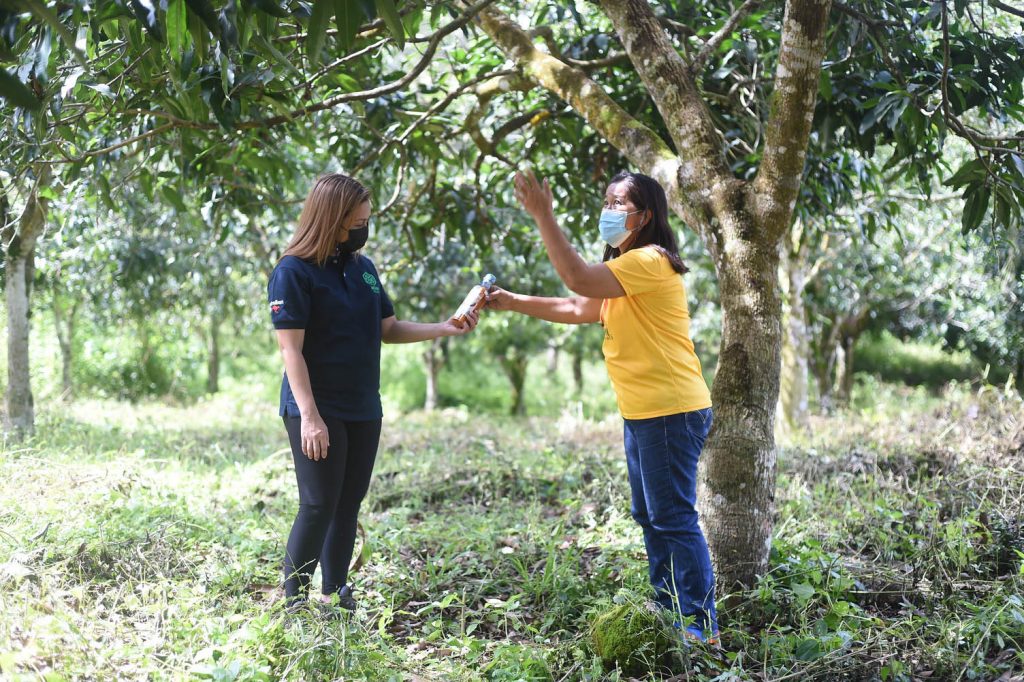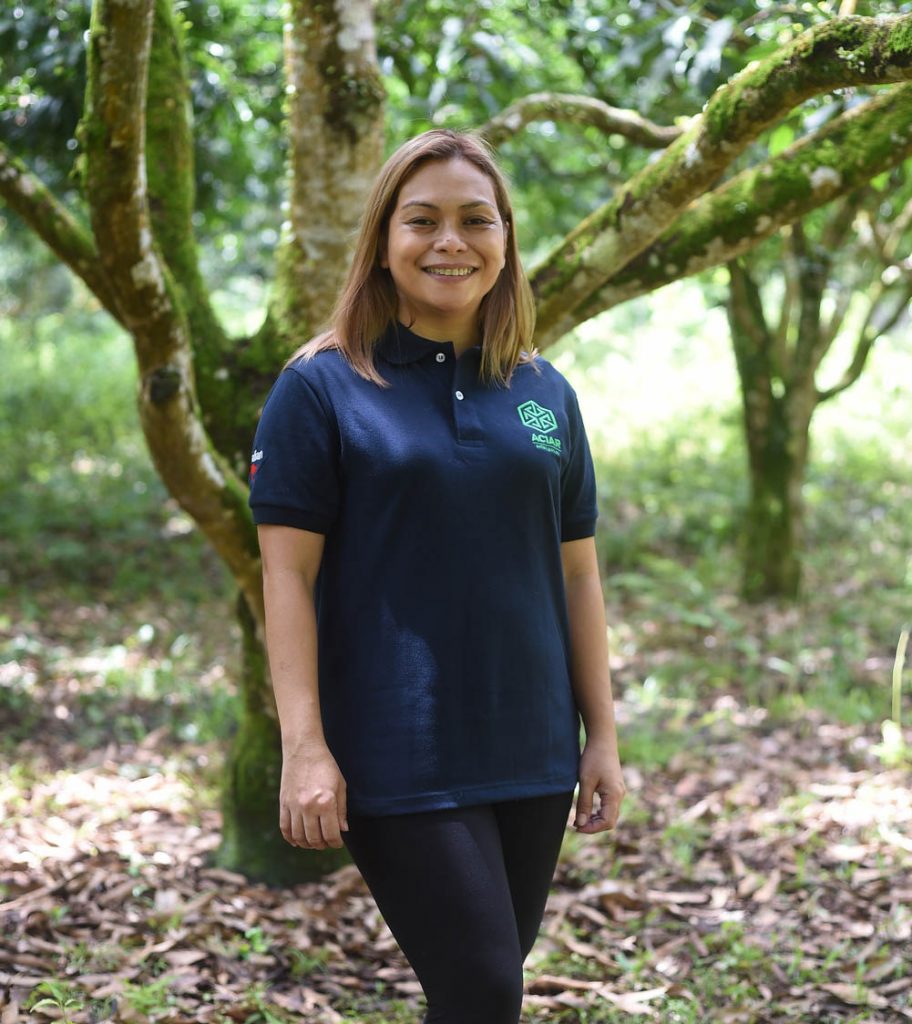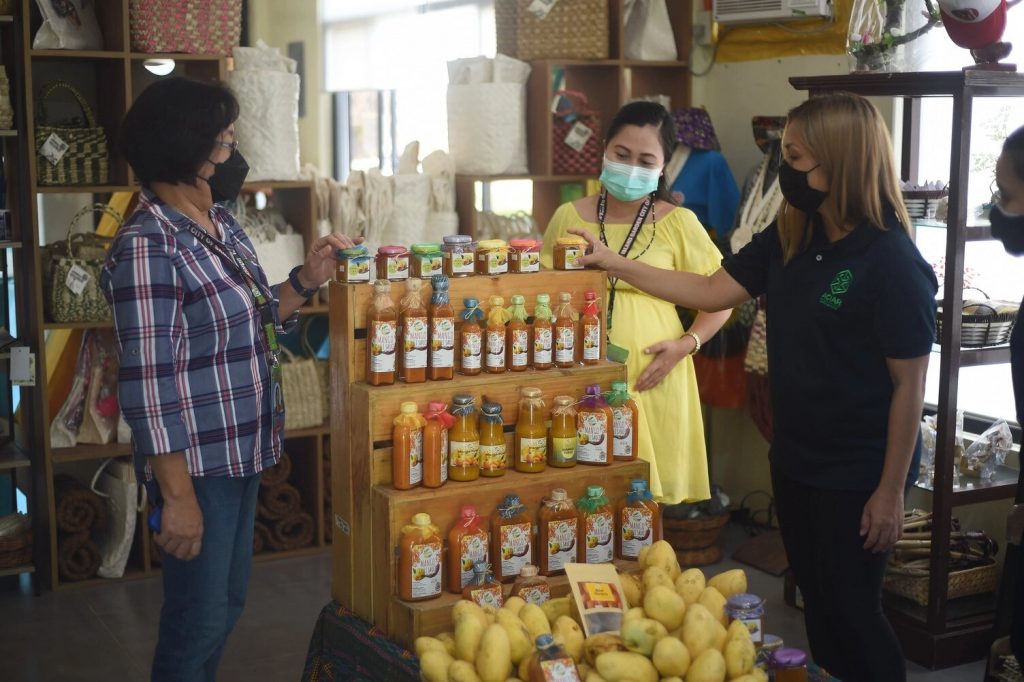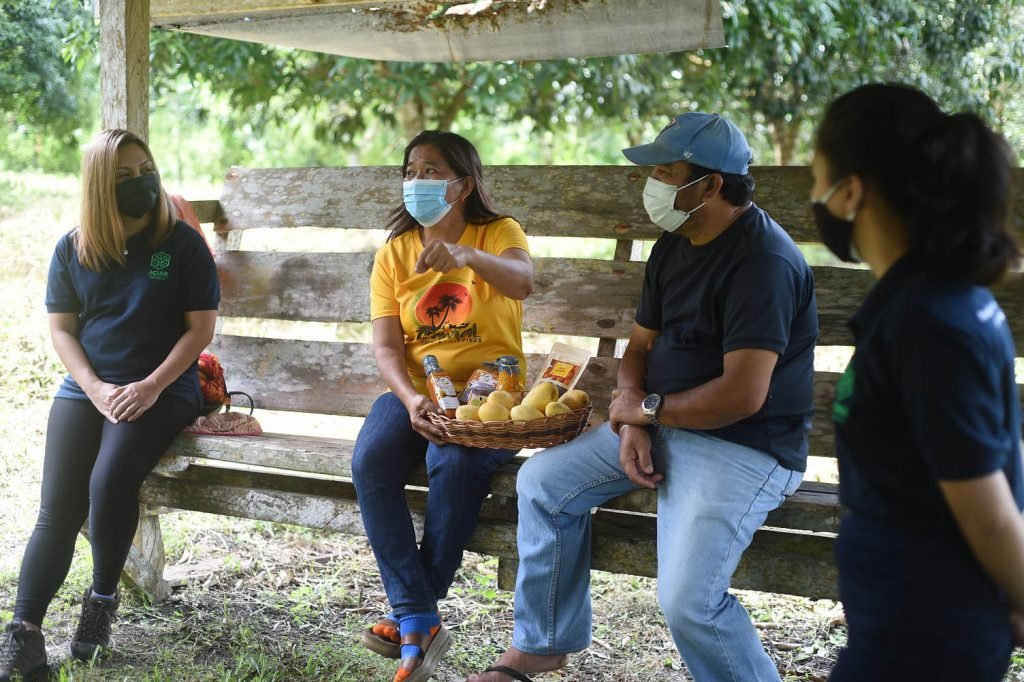
In the lead up to International Women’s Day, we celebrate ACIAR Alumni Dr Glory Dee Romo, who led a research team from the University of the Philippines Mindanao to find out how the COVID-19 pandemic impacted enterprises in the Philippines and how they can bounce back and be more prepared for future crises.

Dr Glory Dee Romo, or simply ‘Dee’, is a socio-economist and a faculty member at the University of the Philippines (UP) Mindanao. She has made it her lifelong commitment to raise the bar in Philippine agriculture by helping and empowering farmers, especially women, to improve their livelihoods and gain better incomes.
These interests grew while pursuing her doctoral degree at The University of Queensland through the ACIAR John Allwright Fellowship (JAF) in 2012-2016 and was furthered during her experience in the Meryl Williams Fellowship in 2021.
A champion for women
For Dee, one of the benefits of the fellowships is being able to establish links with university experts, researchers and potential project collaborators. She takes pride in having worked with outstanding mentors who guided her in completing her postgraduate programs. Through the ACIAR fellowships, Dee was also able to participate in various workshops geared towards helping fellows become better researchers.
Her experiences made Dee realise the importance of focusing research efforts on topics that one is passionate about. For Dee, among these issues include women’s empowerment.
In a blog published by Gender Equity in Agriculture Research for Development [GEAReD]), Dee shared that she is drawn to research projects that focus on women. She ensures that her research and extension initiatives will have gender elements and encourage women participation.
For example, right after her JAF, Dee worked alongside other faculty members from the UP Mindanao School of Management to implement a project in Davao City called ‘Strategic Planning for Women’s Enterprise’. The project worked with a women’s cooperative that produces handwoven products such as slippers, accessories, and mats.
Dee and her colleagues organised training to help these women to improve their skills in managing their organisation including managing finances and marketing their products. Dee hopes that other institutions will replicate the project in other areas in the country.
A champion for food security and resilience
Smallholder farmers, especially women, were foremost in Dee’s mind when the COVID-19 pandemic hit in 2020. Dee and her team at UP Mindanao conceptualised a project that aimed to understand and minimise the disruptions in food value chains, especially in distributing food to the consumers.
‘I was excited when I learned about the support of ACIAR to its alumni through the Alumni Research Support Facility (ARSF), which allowed us to conduct research projects in response to the pandemic,’ said Dee.
‘I was particularly interested in studying the impacts of the pandemic on the food processing sector, particularly the micro, small, and medium enterprises (MSMEs) and what policies could be put in place so that they can bounce back and be more prepared in future crises.’
Dee’s study showed that Philippine enterprises had varied experiences and adaptation strategies amidst the pandemic. Overall, the pandemic has shown both adaptation and challenges faced by agri-food chain actors. Although government policies enabled those who handled basic food such as rice, food manufacturers were affected by reduced demand.
‘Online selling became an important activity in distributing food products but delivering to and sourcing raw materials from distant locations incurred additional costs and these limited the firms’ operations,’ shared Dee.
‘Government assistance programs helped food manufacturers partially recover from the effects of lockdowns. However, due to the intermittent enforcement of lockdowns, many manufacturers and farmers had to resort to loans for business and personal use.
‘Our research also highlighted that women and people with disabilities (PWDs) were among the most affected, as many of them did not have personal savings nor financial capability to counter the impacts of the pandemic.’


At the end of their one-year ARSF project, Dee’s team came up with policy recommendations to share with the local government, other relevant agencies, and the broader research community.
‘One of the points we put forward include having specific policies related to disruptions in food businesses and the whole food system during crises, as these were not clearly defined, if at all existing, pre-pandemic.
‘It is also now more important to have response plans that specifically address the needs of vulnerable groups such as women, PWDs, those with limited savings, sole proprietors, and labourers,’ said Dee.
‘Businesses had to adjust to a new normal setting, challenging their entrepreneurial and management skills to continue operations. The public and private sector should consider this in designing future capacity-building programs such as on financial literacy, marketing, and the use of digital platforms, including social media.’
Dee and her team also implemented the Strengthening Against Vulnerabilities and Externalities of Food Systems (SAVE Food Systems) project, which was funded by the Australian Government’s Australia Alumni COVID-19 Response Grant Scheme in the Philippines. The SAVE project, which complemented Dee’s ARSF initiative, provided smallholder farming communities in Davao with hygiene kits, vegetable seeds, food packs, and training on good manufacturing practices for MSMEs. The project was among the awardees of the University of the Philippines Gawad Pangulo (President’s Award) Excellence in Public Service for 2021.
Dee knew that there would be a lot of challenges in conducting their research projects, particularly in their team’s mobility and ability to meet and engage with their collaborators – the enterprise owners, manufacturers, farmers, traders, wholesalers, and retailers. Among their collaborators, Mr Joel Bisnar and Mrs Amarylis Bisnar, welcomed the team to their mango farm and production facility.
‘Fortunately, we were still able to conduct surveys and field visits, ensuring that we adhere to the strict health and travel protocols. I am grateful that my team at UP Mindanao, which includes Assistant Professor Jon Marx Sarmiento, Adonis Traje, Geraliza Wahing, and Francis Levi Durano, also share the same motivation. It was this great teamwork that made things happen, despite the pandemic,’ Dee said.
‘I told myself that I could not let the pandemic stall my life and stop me from doing what I love most: research and extension. It is not just about the study or written output anymore; it is about how our research could help our collaborators.
-Dr Glory Dee Romo
ACIAR Alumni
ACIAR established the ARSF in April 2020 to respond to the COVID-19 pandemic. The ARSF enabled alumni of ACIAR fellowships to pursue relevant research to help build resilience and respond to the challenges brought by the pandemic to agricultural systems in ACIAR partner countries.
Moreover, it allowed for continuous capacity building of ACIAR alumni, with Australian mentors working with each research team to provide technical advice where needed. The ARSF supported three women researchers from the Philippines.
Learn more about the ARSF.
Source: https://www.aciar.gov.au/media-search/blogs/passion-research-drives-aciar-alumni-despite-challenges-pandemic
